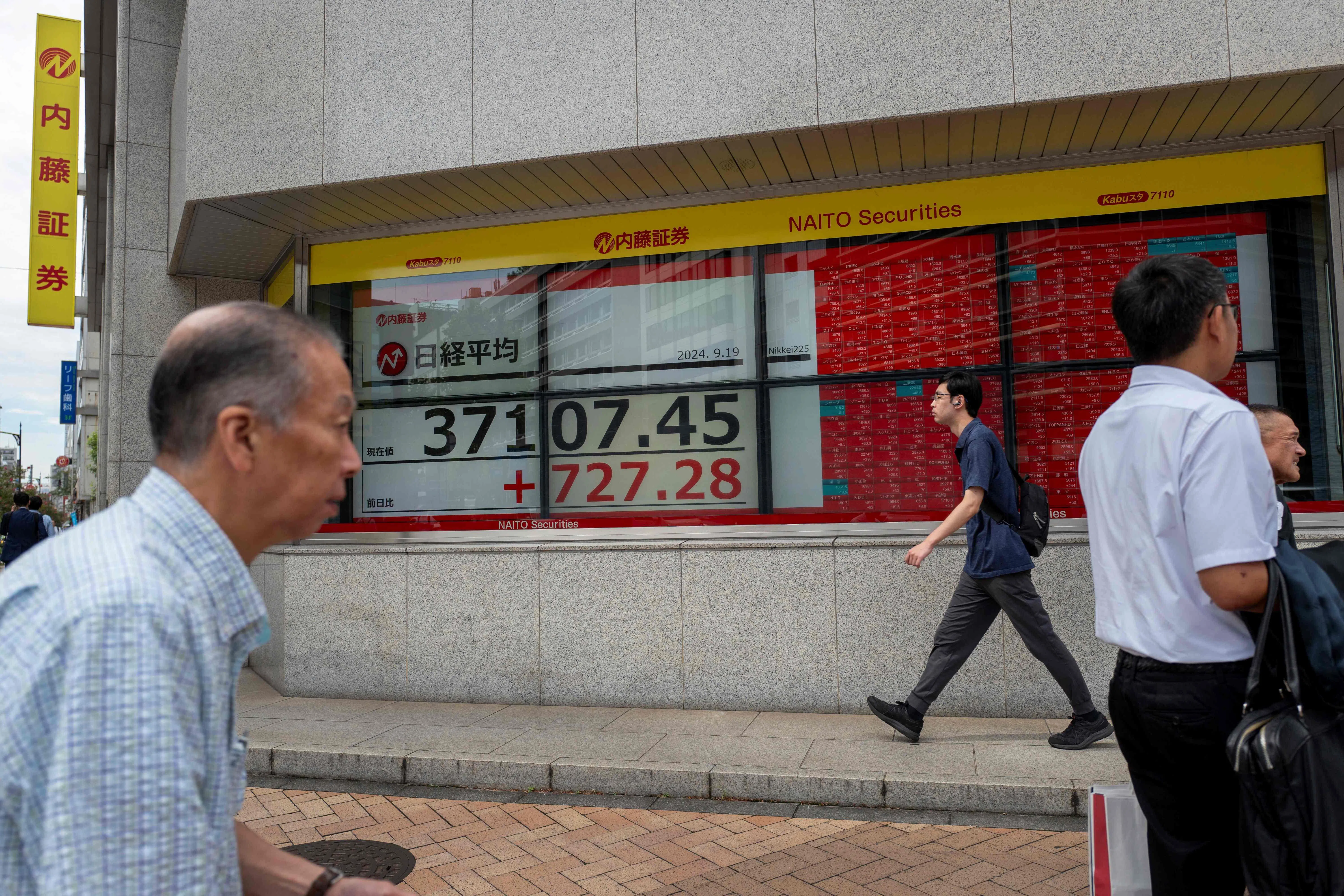MEITUAN’S strategy to focus on lower prices has helped the Chinese food delivery company beat sales targets even as the slowing economy drags peers. Investors are now wondering whether its steep share-price gains can last as the macro weakness deepens.
The firm last month posted 21 per cent sales growth and a record-high gross margin for the latest quarter despite anaemic consumer spending. Backed by strong results, its Hong Kong-listed stock has surged 63 per cent this year, outperforming all global food-delivery peers and topping the Hang Seng China Enterprises Index in 2024.
Meituan’s secret weapon is its cheaper, group-based Pin Hao Fan platform for ordering meals. The service’s success has helped cushion the company’s results so far, but concerns are growing about whether that offering alone will be able to defy the broader consumer slump.
“It’s a tricky one, because on one hand you are seeing this robust revenue growth relative to other platforms, but on the other hand, you still have macro that’s weighing it down,” said Morningstar analyst Kai Wang. “And there’s still a long-term risk with regard to competition.”
At least for now, Meituan has benefited from a reduced threat by rivals. Alibaba Group Holding is focusing on bolstering its core e-commerce business rather than its Ele.me food-delivery operation, while ByteDance’s Douyin is emphasising profitability over market share.
In addition to winning over customers, Pin Hao Fan is also attracting restaurants that are keen to advertise their cheaper products. As a result, the number of transacting users and active merchants both hit record highs on Meituan’s platforms in the second quarter.
BT in your inbox
Start and end each day with the latest news stories and analyses delivered straight to your inbox.
The company has scored some early success with its push outside of mainland China as well, with its KeeTa delivery app in Hong Kong.
Among other things that have gone right, driver recruiting costs have dropped amid elevated youth unemployment, while Meituan has also saved money by shuttering underperforming warehouses and lowering user subsidies. On top of all this, a new US$1 billion stock buyback helped boost investor confidence.
“The company is obviously adopting a low-price strategy to grab more market share and cater to the trend of consumption downgrade in China,” said Daniel So, a trading strategist at Goldhorse Capital Management (HK). “But if the overall consumption is really weak, the new initiatives would not translate into a meaningful growth driver.”
Clouds are gathering, with China’s shaky economy starting to even pressure sales at value champion and former market darling PDD Holdings. Catering chain stocks have been tumbling amid sluggish results, and restaurant sales growth has slowed to the weakest pace since pandemic lockdowns, according to data from China’s National Bureau of Statistics.
With many restaurants struggling for survival and consumer confidence deteriorating, “we continue to argue that Meituan’s revenue growth rate will likely decelerate”, said Barclays analyst Jiong Shao, the only analyst among the 62 tracked by Bloomberg who recommends selling the stock. Analysts on average forecast its sales growth will slow to 16 per cent in 2025 from 21 per cent this year.
Valuations may not provide much reason for further upside. The shares are trading at a forward price-to-earnings ratio to 16 times, down from recent highs but still pricier than Hong Kong-traded tech peers. PDD and Alibaba are both trading below 10 times the expected profits.
Risks are also on the rise as positioning in Meituan’s stock gets more crowded, according to Xiadong Bao, a fund manager at Edmond de Rothschild Asset Management. Investors are cautious about its “macro-sensitive nature” and whether the current growth rate is sustainable in a deflationary environment, he added. BLOOMBERG






